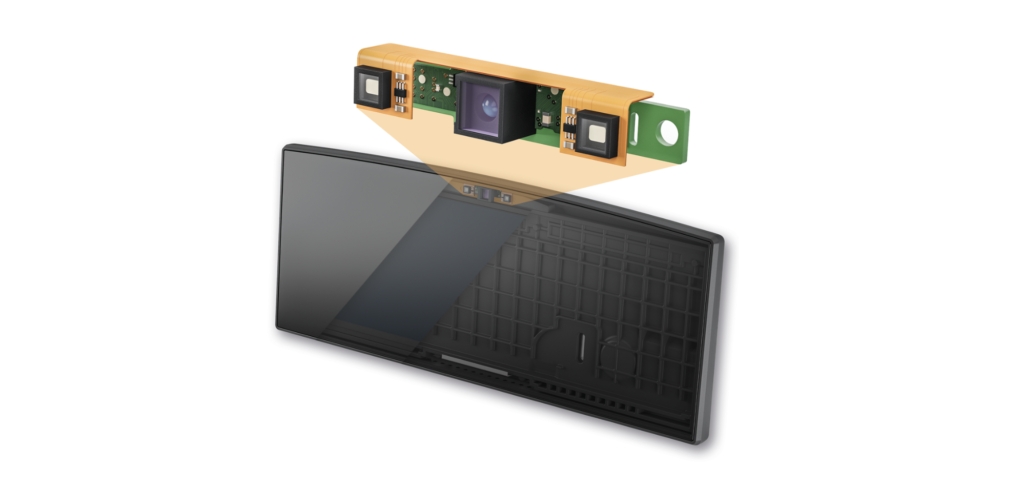Continental has developed an integrated interior sensor solution that it claims already meets future safety standards. Notably, Continental says that by using real-time object monitoring of the entire vehicle interior, it is going beyond just driver monitoring and offering an additional building block for future mobility models, such as automated or autonomous driving.
“For our new approach to interior sensors, we not only pooled the expertise of various areas but also mastered several technical challenges,” explained Ulrich Lüders, head of strategy and portfolio in Continental’s Human Machine Interface business unit. “For the first time ever, we are integrating the camera directly into the display, instead of into the steering column or the instrument cluster. For this, we’re relying on extreme miniaturization of the technology, which opens up completely new positioning opportunities for us.”
The company says that by miniaturizing the optical and sensor elements of the system, in the case of the former to approximately 10mm2 , it can seamlessly integrate them into the dashboard display. Furthermore, the positioning of the radar sensor allows for coverage of the entire vehicle interior. This, states Continental, means it can reliably detect live objects in the vehicle, whether they are adults, children or animals. This is particularly important for future safety standards, as Lüders outlined: “With our cabin sensing solution, we meet the new requirements of the EU General Safety Regulation (GSR) and also help automobile manufacturers to score well in the Euro NCAP.”
“Our development focused on recognizing living objects,” said Daniel Naujack, product manager for interior camera and cabin sensing at Continental. “Among other things, cabin sensing detects the child’s breathing, identifying it as a living person and sounding the alarm. False warnings are virtually impossible. Based on image information from the interior camera, the system can also detect luggage that has been left behind and send a notification to the owner’s cell phone if, for example, they have forgotten a briefcase in the rental car.”
In the future, Continental envisages that cabin sensing will be able to measure and evaluate not only object movements but also health parameters such as pulse, breathing rate and body temperature. If the system detects a health emergency, it can then stop the vehicle safely. “By recording a wide range of vital data through cabin sensing, we will make the car a smartwatch for passengers in the future,” concluded Naujack.



